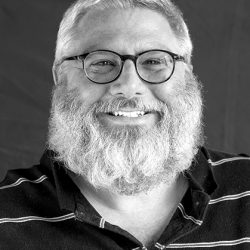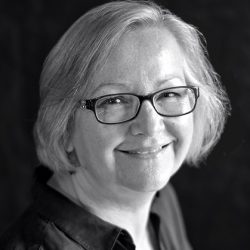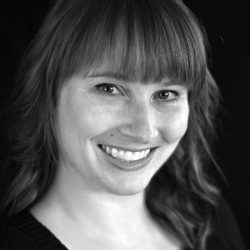Meet Dr. Teresa Rose Osborne
By Nancy Foasberg

Rose plays with dead Pacific Island land snails in lab.
“I want as many people as possible to know about this research that I’m so proud of and to read and understand it for themselves.”
-Terese Rose Osborne
Welcome to the Villanova Author Interview Series! In this series, Nancy Foasberg, MLS, Falvey’s Scholarly Communication Librarian interviews authors who have benefited from Falvey’s Scholarship Open Access Reserve Fund (SOAR), which provides financial support to members of the Villanova community who plan to publish in high quality open access publications.
Dr. Teresa Rose Osborne
Department: Biology
Title: Postdoctoral Scholar
Article Title: “Flying snails: immigrant selection and the taxon cycle in Pacific Island land snails”
Research Interests: Evolutionary ecology of terrestrial invertebrates, particularly land snails, and abiotic challenges to Neotropical ant locomotion
Can you tell me more about what inspired your research?
This research started as a term project for my Biogeography course in graduate school, the study of which organisms live where, how they got there, and trends in organism traits over broad spatial scales.
I chose Pacific Island land snails as the focus of my term project. The general assumption among island land snail researchers is that snails travel between islands by being blown by wind or carried by birds and other flying animals. Before my research, I’m aware of only one paper that systematically evaluated the plausibility of wind- and bird-mediated inter-island travel using multiple Pacific archipelagos and multiple land snail groups—and that paper was published back in 1975!
For my term paper, I decided to follow up this previous study using a somewhat different approach. My findings agree with Joseph Vagvolgyi’s—land snail species that occupy multiple archipelagos have smaller shells on average, indicating that land snails that travel great distances between Pacific archipelagos are typically small, consistent with wind and bird transport of land snails.
Later, I decided to turn my term paper into a chapter of my dissertation and eventually a publication. I met with my then committee member (now co-author) Mark Lomolino to discuss how to present my idea in the most scientifically compelling light.
He suggested that I use the concept of the taxon cycle to strengthen my research questions. The taxon cycle hypothesizes that for any given island species and its descendent species (a.k.a. a single taxon), when the taxon is new to an archipelago, it can’t be very picky about the habitats it uses, because it isn’t yet adapted to that archipelago.
In many Pacific Islands, habitat quality increases with island elevation. The taxon cycle predicts that new species will be excluded from high-quality habitats by other locally adapted species, but as the taxon of interest spreads throughout its new archipelago and becomes more locally adapted, it becomes more specialized in its habitat use and can better compete in high-quality, high-elevation habitats.
The taxon cycle predicts that widespread species found on multiple archipelagos would occupy several different kinds of habitats, but only at low elevations; whereas species unique to a single archipelago or single island would each occupy a single kind of habitat and would be found at higher elevations.
My co-author Mark was a big fan of the taxon cycle hypothesis, but I was skeptical of its applicability to land snails; as far as I can tell, no island land snail researchers had ever taken the possibility of the taxon cycle in land snails seriously before.
I tested for associations between how many islands a land snail species occupies, how many different habitats it uses, and its habitat elevation so that I could show Mark that the taxon cycle wasn’t going to work for us. Instead, I found the opposite! The predictions of the taxon cycle were supported in our dataset!
While we have yet to definitively prove that the taxon cycle describes evolution in Pacific Island land snails, we have shown that the possibility can’t be dismissed out of hand.

Rose looking at a Pacific Island land snail of the family Partulidae in the Belau archipelago (Republic of Palau, Oceania).
For the non-biologist, what’s the most exciting thing about your research in this paper?
Well, for a non-biologist, I think that the idea of land snails flying across the ocean is pretty exciting! I like to imagine tiny shells blown high in the sky, in what we sometimes call “aerial plankton.” But for another land snail biologist, flying snails are probably the least surprising finding in this paper. I think the scientifically surprising findings are (1) there is evidence consistent with the taxon cycle in Pacific Island land snails, and (2) Pacific Island land snail species that are found only on a single island tend to have small shells. Let me tell you why these results might be surprising to an island land snail researcher.
To my knowledge, island land snail researchers never paid much attention to the taxon cycle hypothesis. I assumed that Pacific Island land snails wouldn’t conform to the taxon cycle, and I was surprised to find otherwise.
If land snails are flying between islands, we would expect that small-bodied land snail species would occupy the greatest number of islands and archipelagos. Indeed, land snails species native to multiple archipelagos are smaller than species native to multiple islands in a single archipelago. However, land snail species native to a single island are just as small as widespread species. Why? Shouldn’t they be bigger, since they travel between islands even less frequently than single-archipelago species do? I don’t know why single-island species are so small, but my best guess is that instead of flying between islands, single-archipelago species might be rafting on vegetation blown out to sea. By being large and living in vegetation, single-archipelago land snails can both avoid traveling away from their home archipelago and better travel within their archipelago. But this still doesn’t explain why single-island land snails tend to be small, instead of, say, a mix of sizes. This one is going to be a puzzle for me for a while.
Your article is openly available so that everyone can read it. For you, what’s the benefit of making your work open?
The scientific publishing industry is broken. Researchers make no profits off our publications, and often, we even must pay publishers before their journals will share our work. If we want to read another researcher’s work, we usually must pay for it directly or hope that our institution pays the journal for access. A handful of large, for-profit scientific publishers own many of the scientific journals and profit from the free labor of researchers while selling access to our collective intellectual labor back to us as a scientific community.
I prefer to publish in journals owned and run by scientific societies, which add value to the scientific community not just through their journals, but also through conferences they host, small grants they offer to students and other researchers, and more. If some organization is going to profit from my free labor, I’d rather it’s a scientific society than a for-profit publisher.
I published this research in Frontiers of Biogeography, an open-access journal run by the International Biogeography Society. Frontiers of Biogeography asked that my co-authors and I pay a small fee to help support the journal, and thanks to Falvey’s Scholarship Open Access Reserve (SOAR), Villanova is paying that fee for us.

Rose photographs Pacific Island land snails
And I’d also rather that other scientists can read the fruits of my labor for free, both because it’s fairer and because more people are likely to read it! Pay-to-read scientific publishing isn’t just unfair to scientists. It also makes it much more difficult for non-scientists to access our work. Anything that makes it harder for non-scientists to access and understand scientific information is dangerous for society.
Unfortunately, pay-to-read publishing isn’t the only problem here. Many scientists—myself included—have a habit of writing in ways that are difficult for anyone outside our subfields to understand, let alone the general public. That’s why I’m participating in Villanova’s research blog series. I want as many people as possible to know about this research that I’m so proud of and to read and understand it for themselves.
Now that this article is published, what’s the next direction your research will take?
I’m in a career transition at the moment, so I’ve been thinking about this question a lot. My postdoctoral position at Villanova University ends this summer, and I hope to start a faculty position soon. I’m very curious about how different kinds of environmental challenges impact land snails. In this study, I looked specifically at how travelling between archipelagos impacts shell size. In the future, I’d like to look more closely at whether land snails are rafting between nearby islands in the same archipelago. My previous work also examined how high temperatures, drying out, and the pull of gravity might affect land snail habitat use, shell size, and shell shape, respectively. My future research will continue these lines of inquiry.
For example, here at Villanova, I study how different kinds of environmental challenges affect the way ants run. I’m going to take that same perspective to land snails and see how well land snails of different sizes and shapes can crawl on flat, vertical, and inclined surfaces.
As a kid, I was always fascinated by slugs, and that’s the reason I became a biologist. Slugs are basically snails with small, disc-shaped shells covered with skin. There are even intermediate snail-slug animals called semi-slugs that have a visible external shell that’s too small for the snail to hide in. This makes slugs a great example of evolution in action, because we can see the “missing link” semi-slugs in the world today.
In my future research, I want to investigate what environmental conditions prompt snails to evolve into slugs. Researching slugs will bring my scientific curiosity full-circle and will make the Young Rose who lives in the back of my mind very happy!

Nancy Foasberg, MLS, is the Scholarly Communication at Falvey Library.
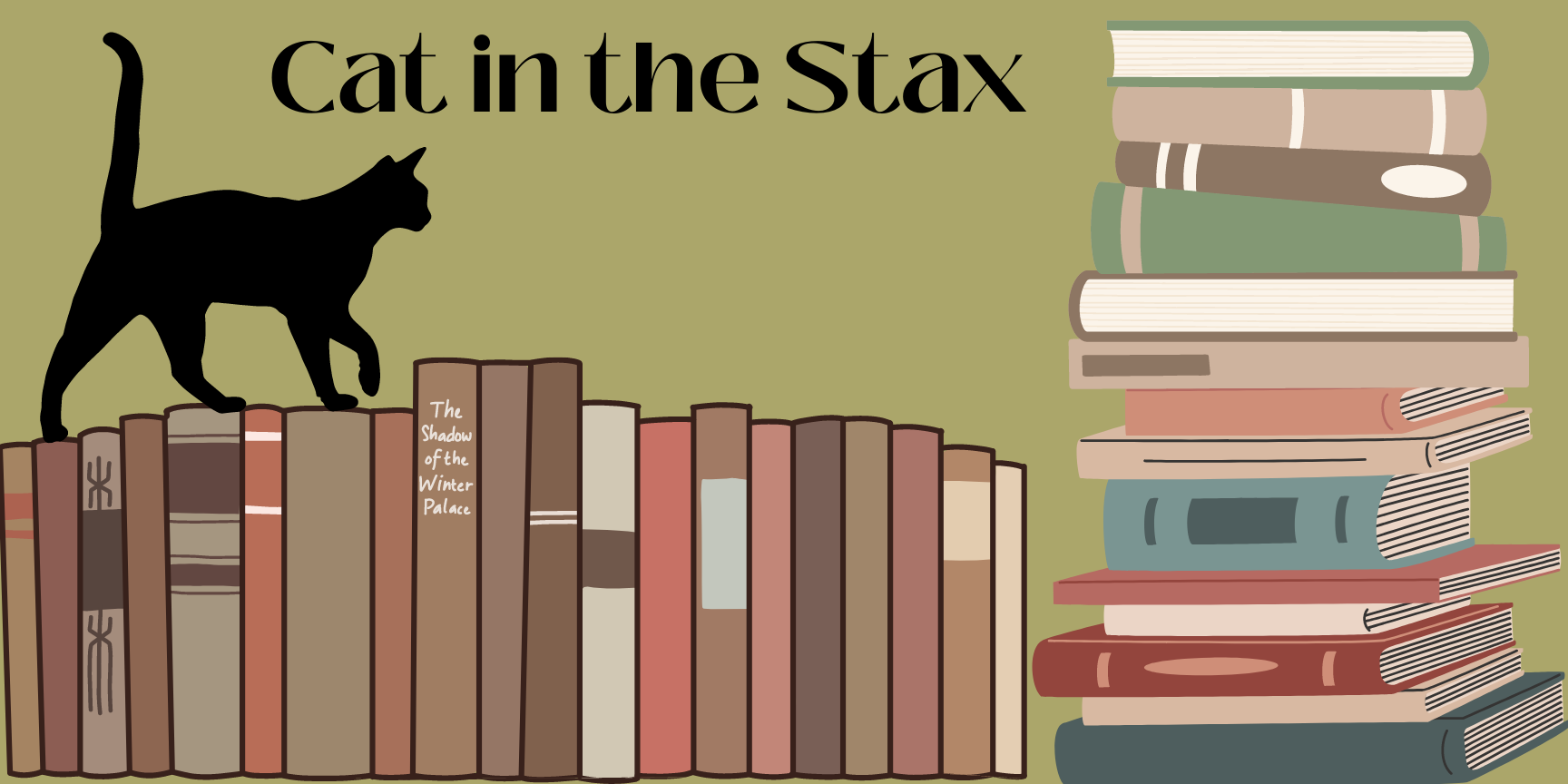

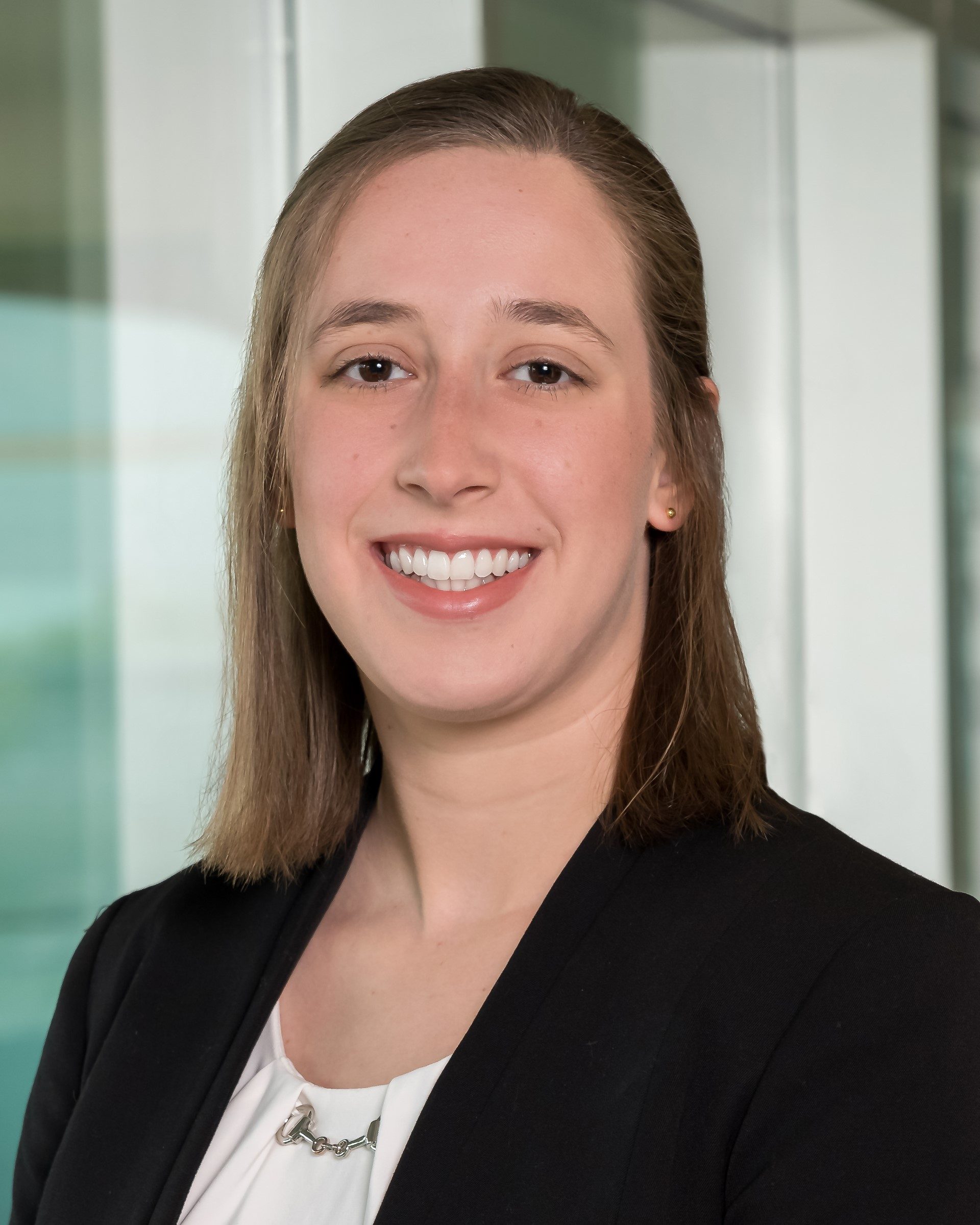




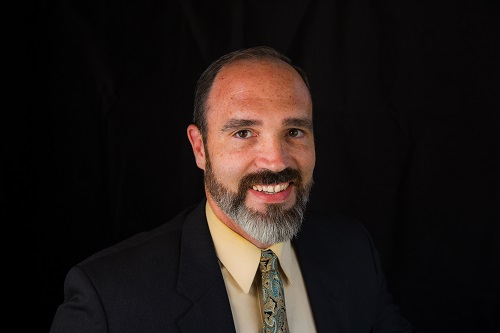



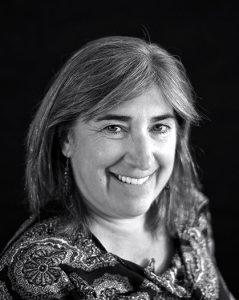 Linda Hauck, MLS, MBA is Business Librarian at Falvey Library.
Linda Hauck, MLS, MBA is Business Librarian at Falvey Library.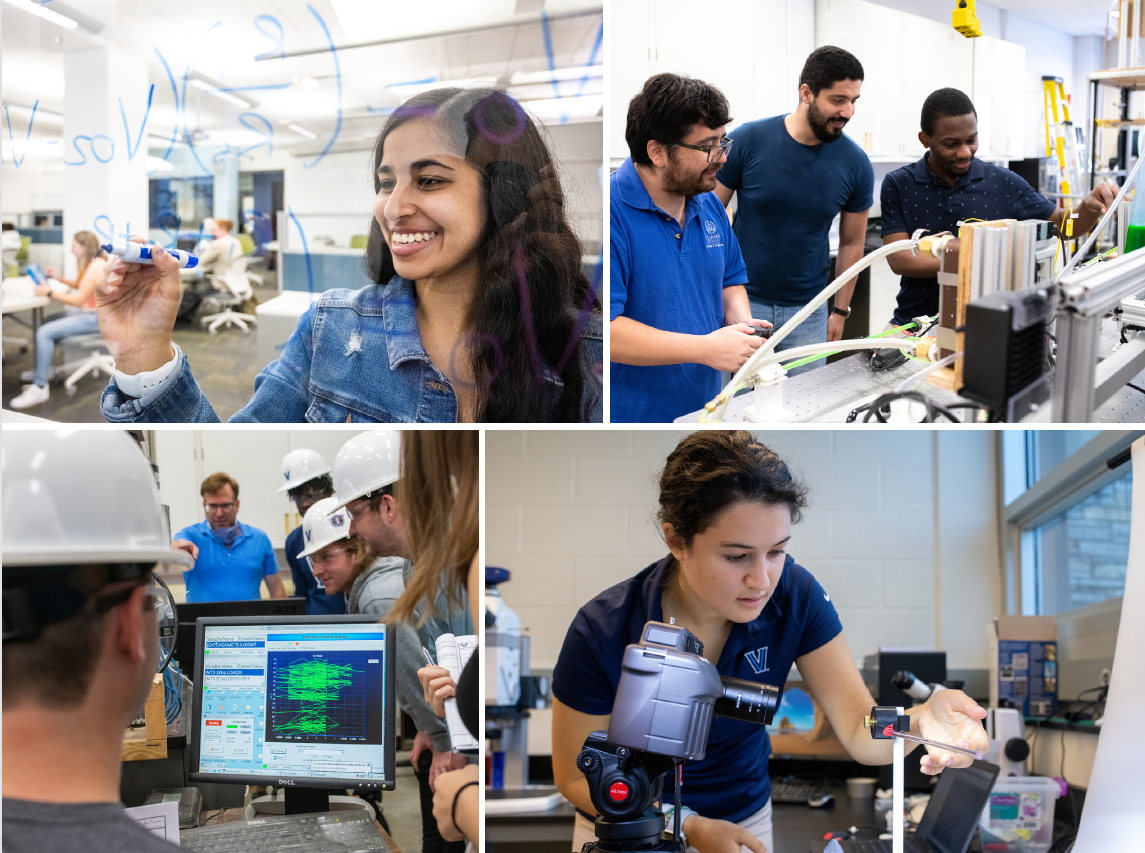

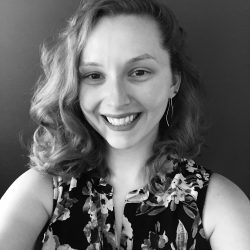
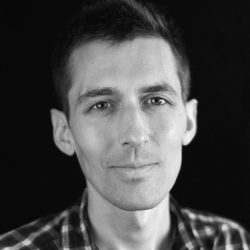

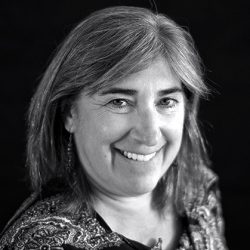
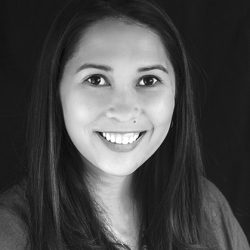
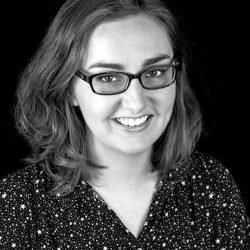
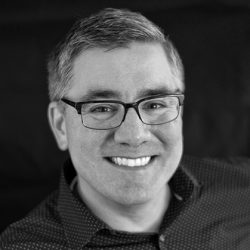
 Laurie Ortiz Rivera
Laurie Ortiz Rivera